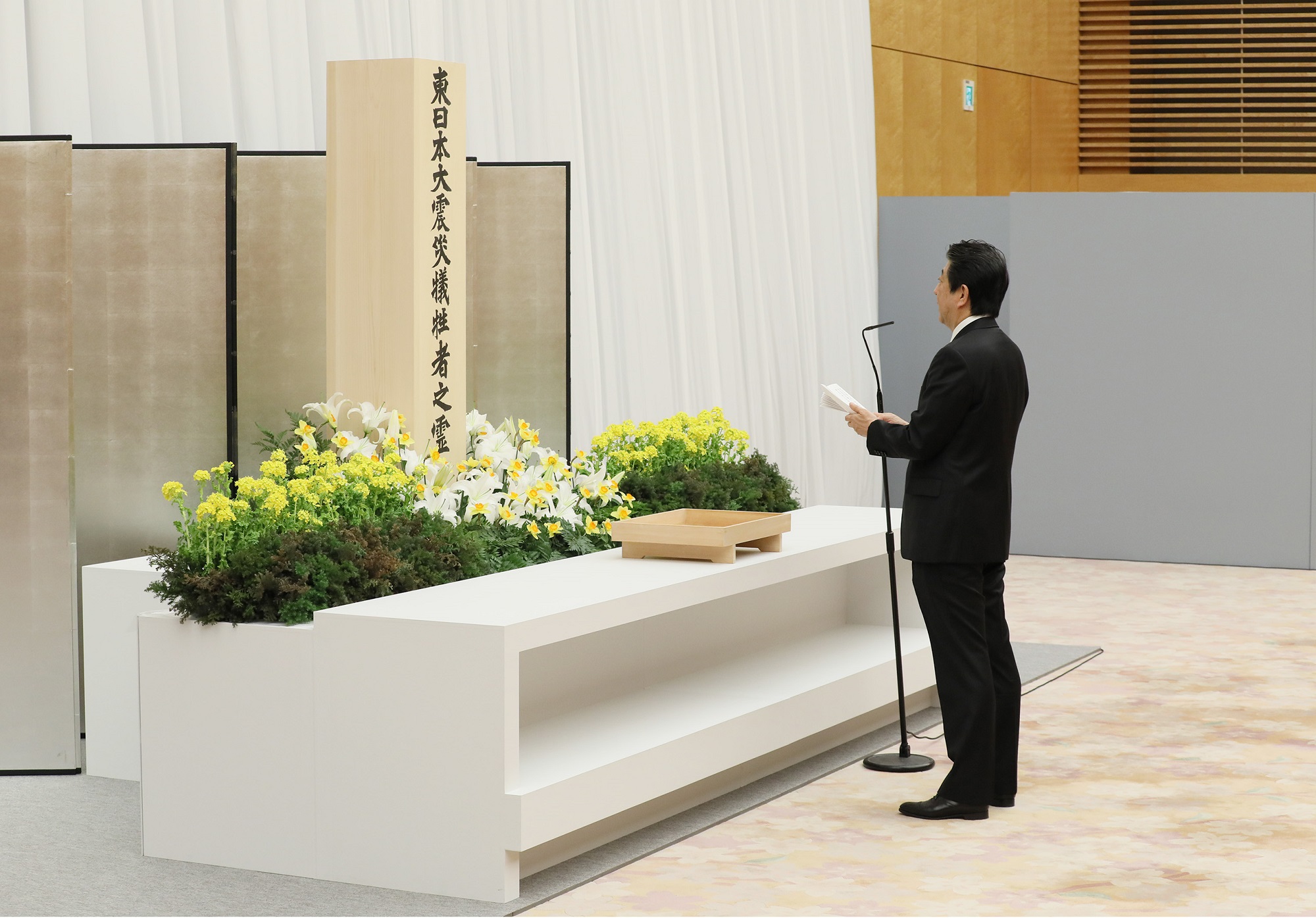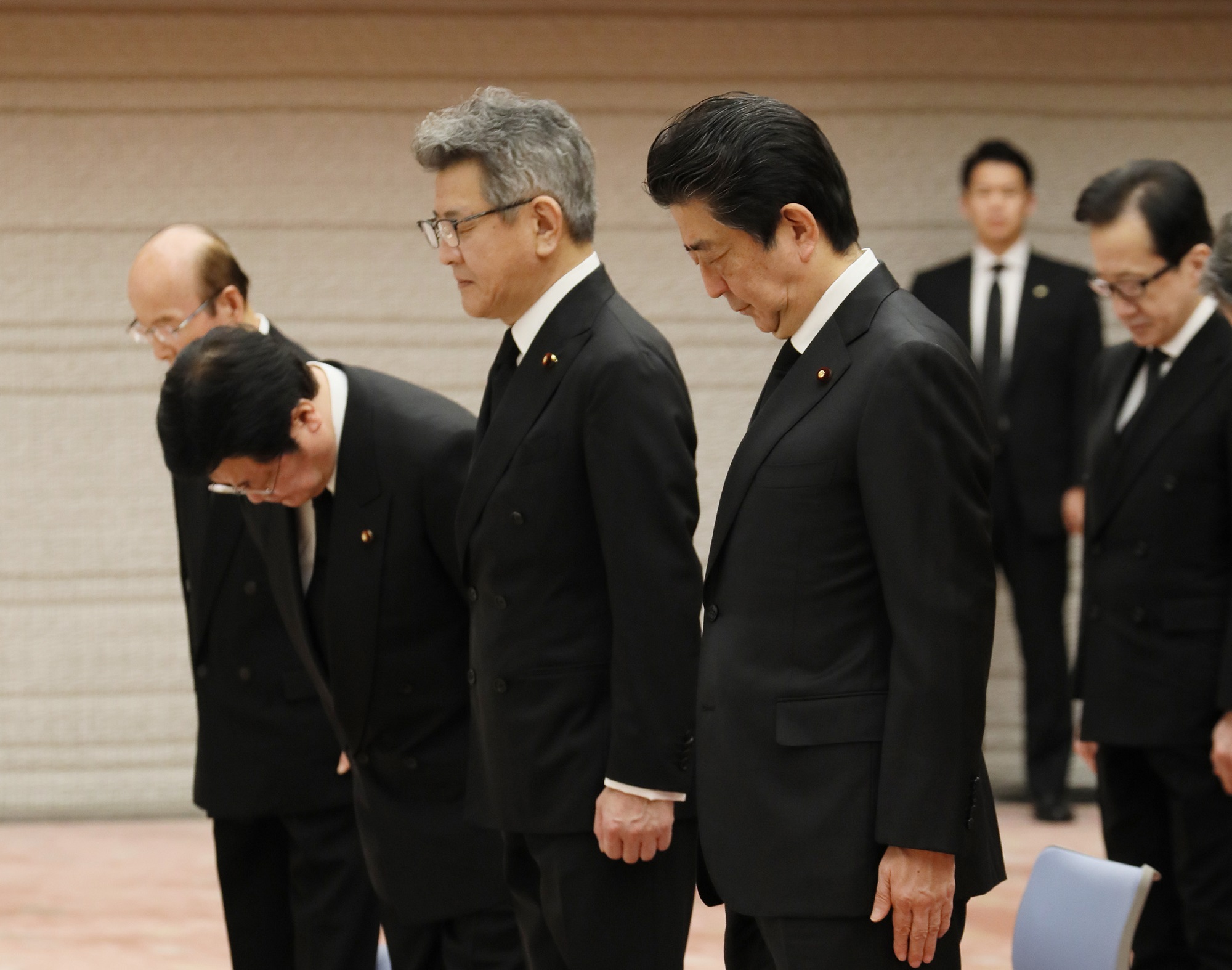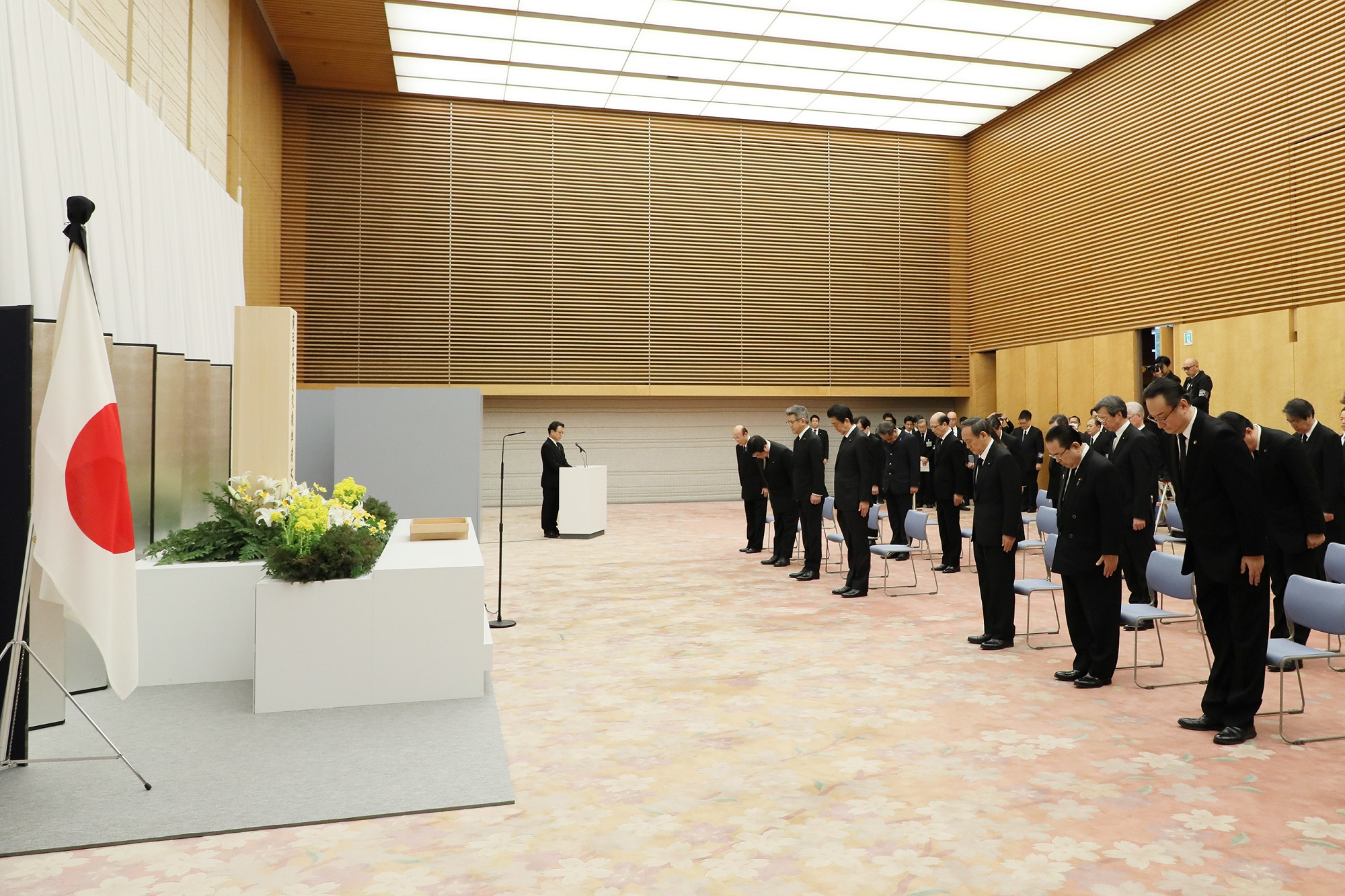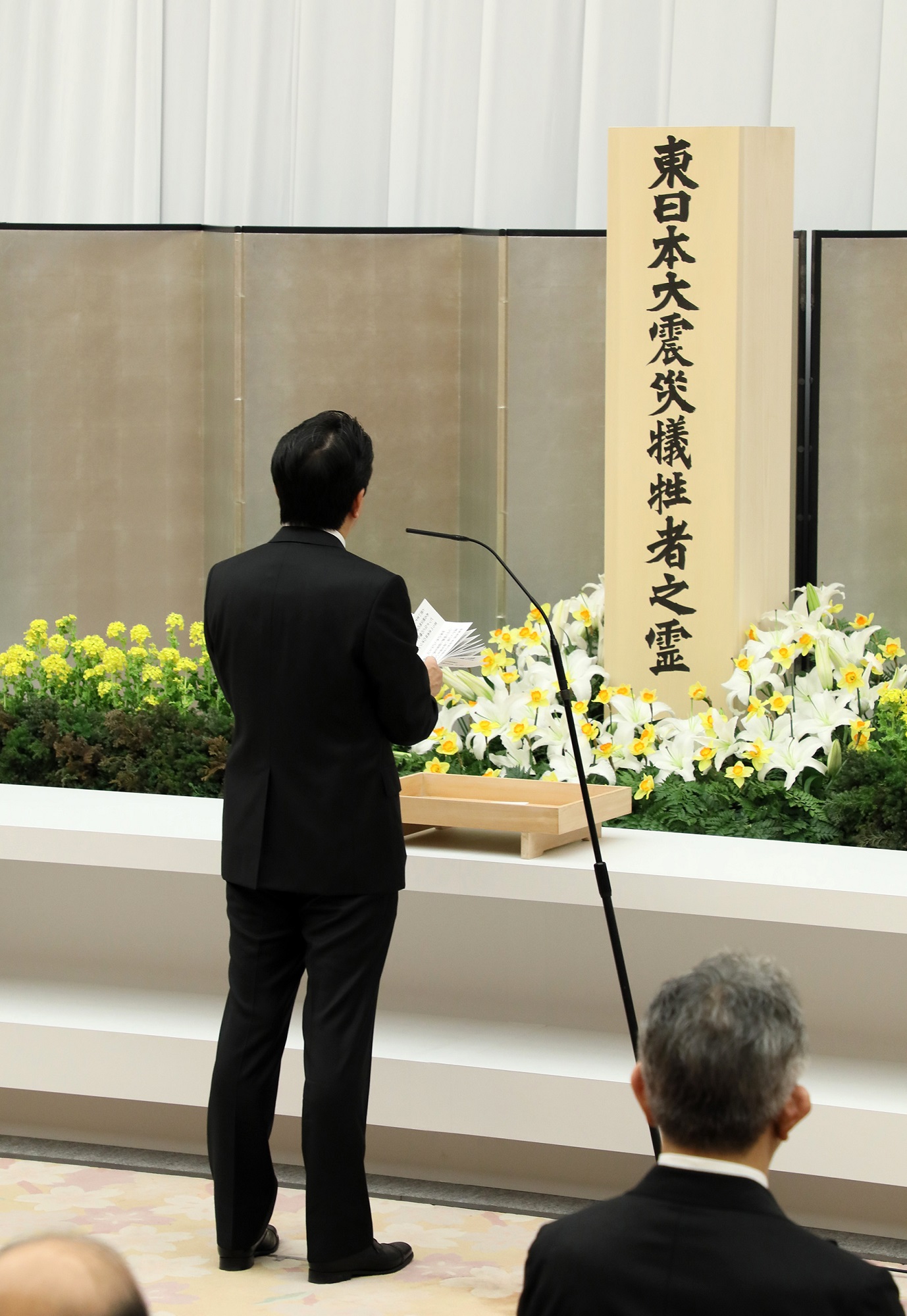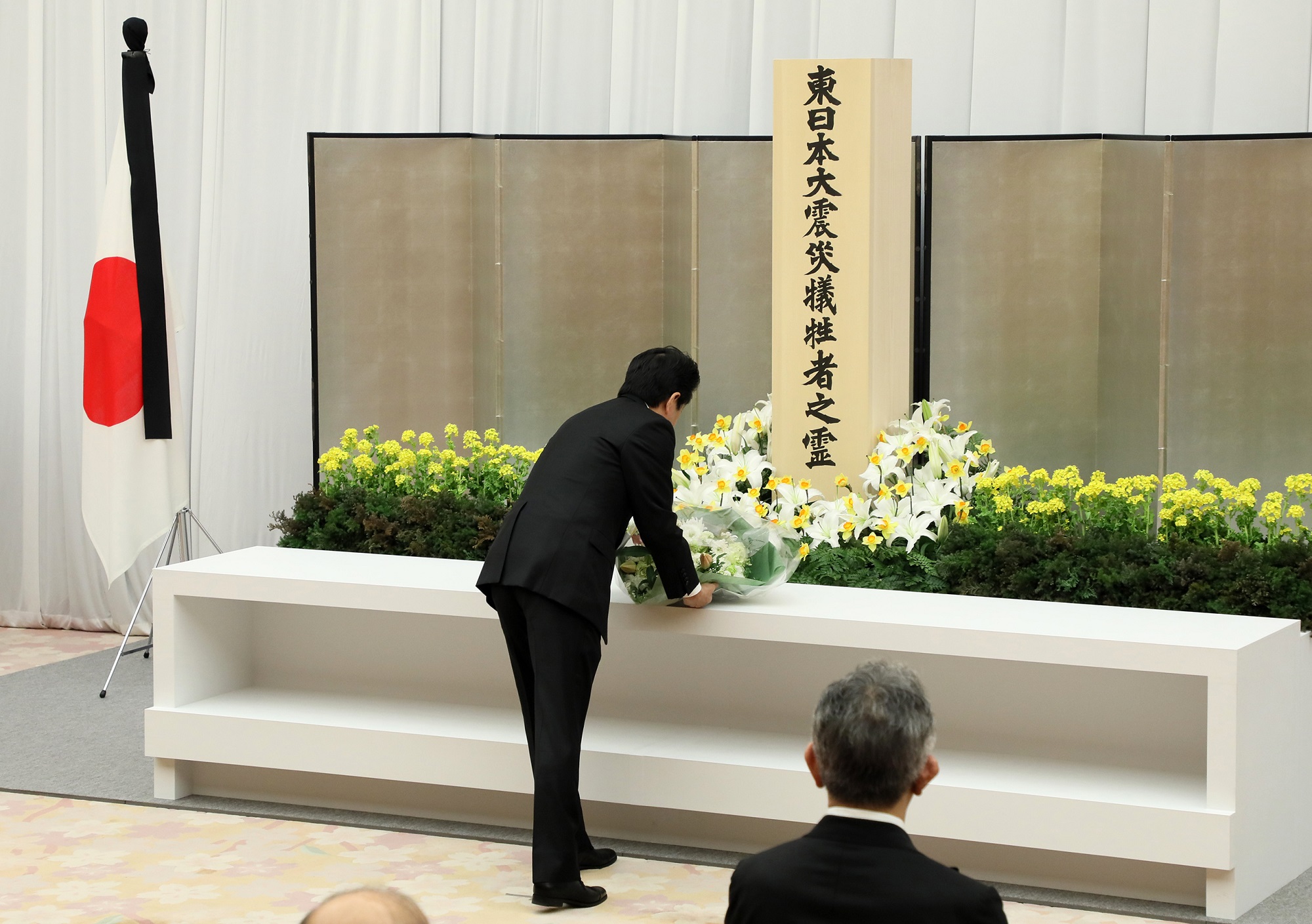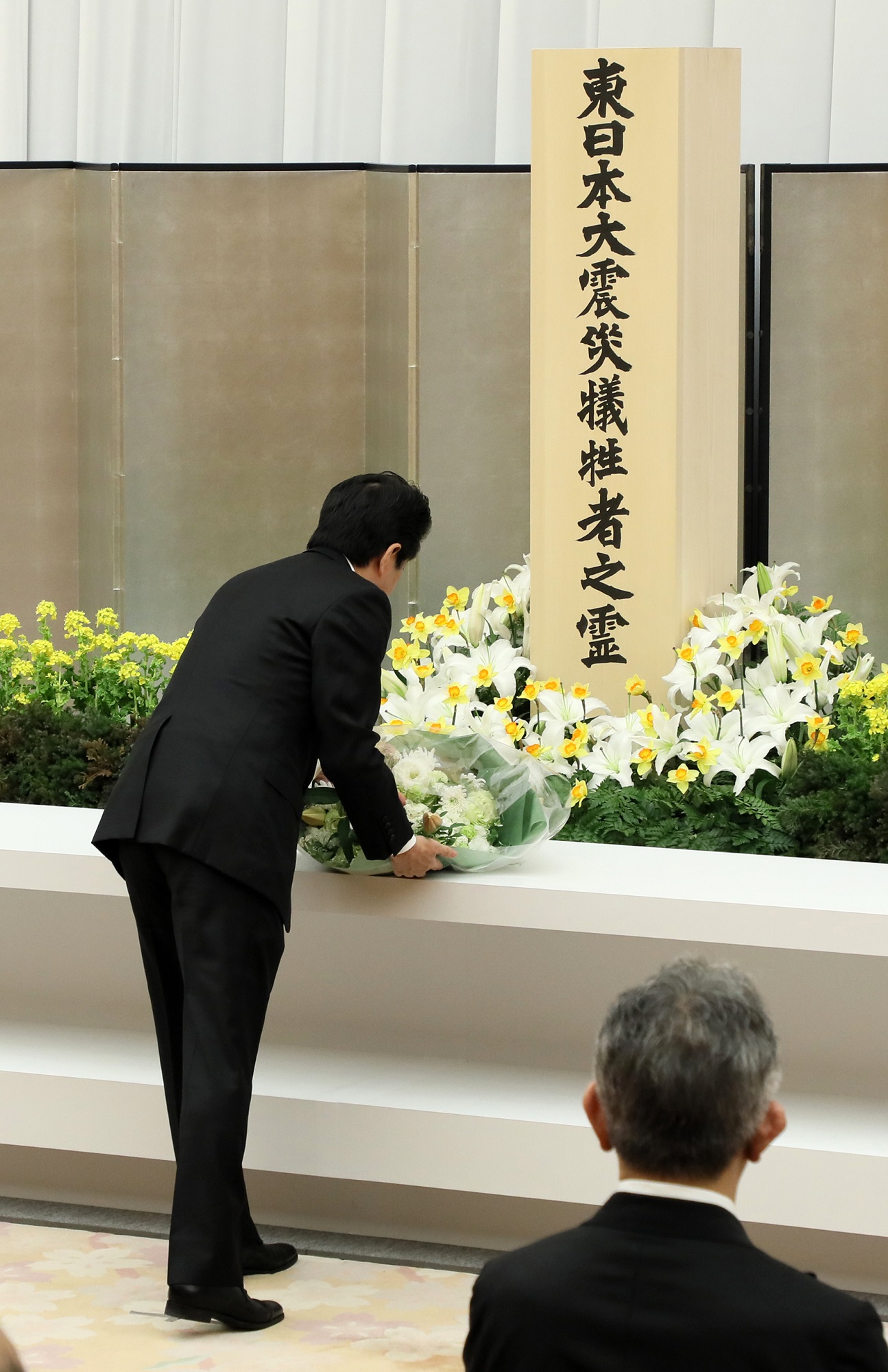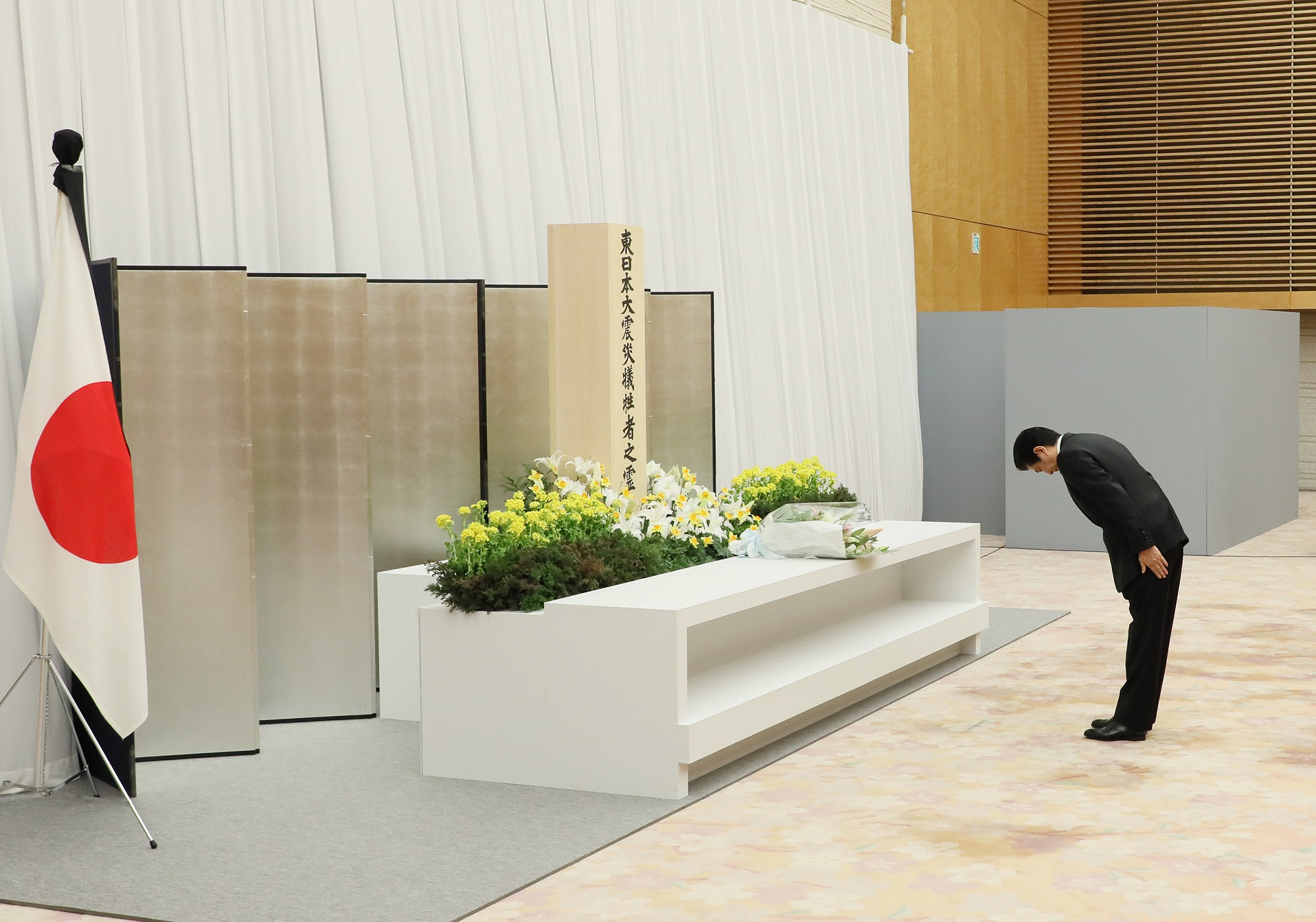Home > News > The Prime Minister in Action > March 2020 > Floral Tribute to mark the Great East Japan Earthquake at the Prime Minister’s Office
The Prime Minister in Action
Floral Tribute to mark the Great East Japan Earthquake at the Prime Minister’s Office
March 11, 2020
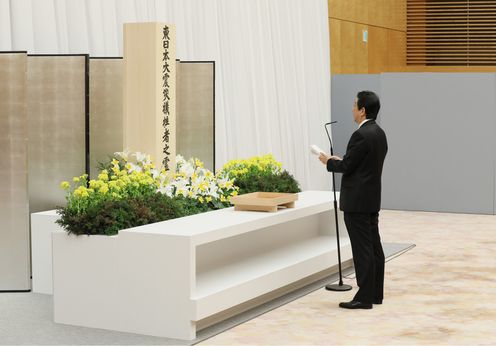
Photograph of the Prime Minister giving the memorial address (1)
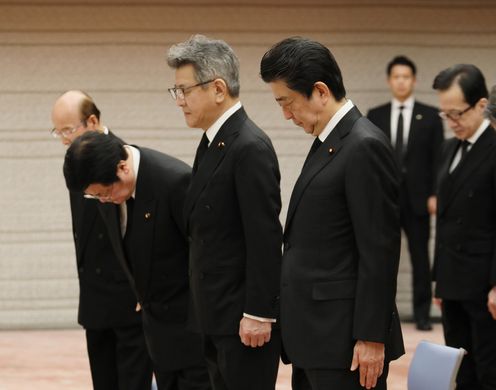
Photograph of the Prime Minister observing a moment of silence (1)
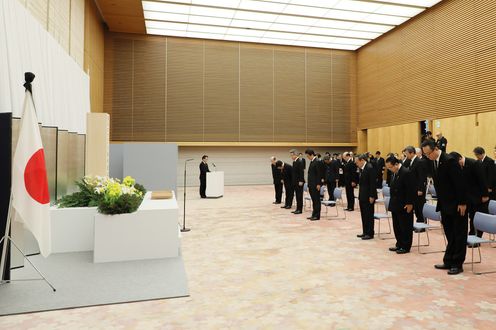
Photograph of the Prime Minister observing a moment of silence (2)
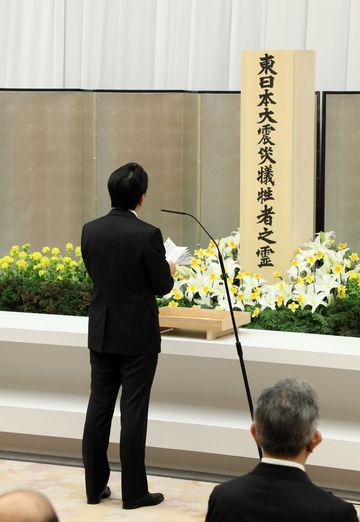
Photograph of the Prime Minister giving the memorial address (2)
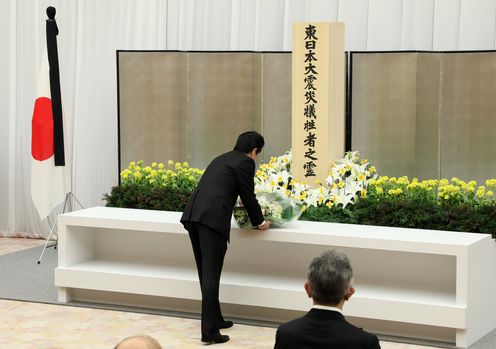
Photograph of the Prime Minister offering flowers (1)
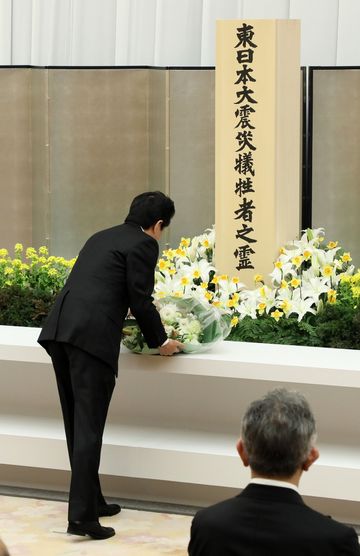
Photograph of the Prime Minister offering flowers (2)
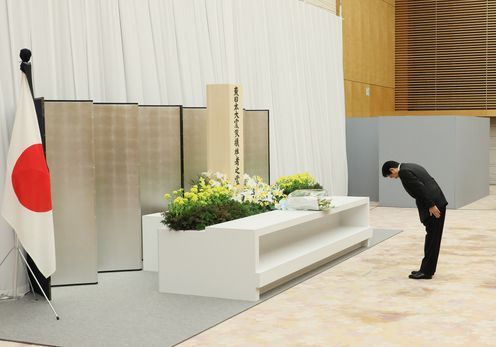
Photograph of the Prime Minister offering flowers (3)
[Provisional Translation]
On March 11, 2020, the Prime Minister attended a floral tribute to mark the Great East Japan Earthquake at the Prime Minister’s Office.
After observing a moment of silence, the Prime Minister gave the memorial address.
“It is with the deepest respect that I, representing the Government of Japan, express my condolences on the occasion of the ninth anniversary of the Great East Japan Earthquake.
To begin with, it is necessary to touch upon the cancellation of the Memorial Ceremony Marking the Ninth Anniversary of the Great East Japan Earthquake hosted by the Government this year.
Until the very last minute, we explored ways to hold the memorial ceremony by implementing measures to prevent the spread of novel coronavirus infections, such as downscaling. In light of the ongoing situation, it is with utmost regret that we decided to cancel the ceremony since we are at the moment taking every possible measure to prevent the spread of infections in Japan. I would like to offer my sincere apologies to the bereaved families and all the relevant parties.
Nine years have passed since the Great East Japan Earthquake, which caused unprecedented damage centered on northeast Japan and claimed many precious lives.
When I think of the despair of those who lost beloved members of their families and friends in the disaster, I am overwhelmed even now with deep sorrow. It is with my deepest sympathy that I reiterate my sincerest condolences. I would also like to extend my heartfelt sympathies to all those who have been affected by the disaster.
With the passage of nine years since the disaster, I can see that reconstruction of the affected regions is making steady progress. In areas that were affected by the earthquake and tsunami, with the rebuilding of homes and reconstruction of communities having mostly been completed, as well as steady progress in the revival of industry and ‘nariwai’ (occupations and livelihoods that sustain people’s everyday lives), we have begun the wrap-up of our reconstruction efforts.
In areas of Fukushima that were significantly affected by the accident at the nuclear power plant, reconstruction and revitalization are entering a new stage, with the JR Joban Line resuming full service across its entire section on March 14, and evacuation orders being lifted for the first time for the difficult-to-return zones of some areas. Nevertheless, 6,000 people still have to live in temporary housing facilities, and many people have endured uncomfortable lives for a long period of time.
The Government will continue to provide seamless support through the various stages of livelihood rehabilitation of those who are affected by the disaster. In regions affected by the nuclear disaster, which require medium- to long-term response, we will steadily advance measures such as developing living environments that will permit people to return to their communities, and supporting the revitalization of local industries and livelihoods. Even after the reconstruction and revitalization period comes to an end next fiscal year, we will exert every effort towards the next stage of the process.
At the same time, we must never let the valuable lessons that we have learned from the enormous damage caused by the disaster to fade away. We will ceaselessly review disaster-prevention and mitigation measures that will save the lives of Japanese people in the future. I firmly promise once again to advance efforts to build national resilience in every field and build hometowns that are resilient against disasters.
Since the earthquake, reconstruction has made progress thanks to the tremendous efforts of the local people and countless related parties. Much warm support and assistance poured in from countries and regions around the world. I would like once again to express our sincere gratitude as well as our respect. We hope that many people across the world will experience for themselves the current status of the affected areas as they recover from the disaster, through opportunities such as this year’s Olympic and Paralympic Games, which can be described as recovery and reconstruction games.
It is our responsibility to share with other countries and regions the lessons of the Great East Japan Earthquake, as well as disaster prevention knowledge and technology that can all be instrumental in minimizing future disasters. We will further strengthen our international contributions in the field of disaster prevention.
In the past, our nation suffered countless disasters that could be described as national crises. Each time, we overcame them with determination and hope. I vow once again that we will follow hand-in-hand in the footsteps of our forefathers and continue to move forward.
In concluding, I would like to offer my heartfelt prayers for the eternal repose of the souls of those who lost their lives and I pray for the peace and tranquility of their bereaved family members.”

